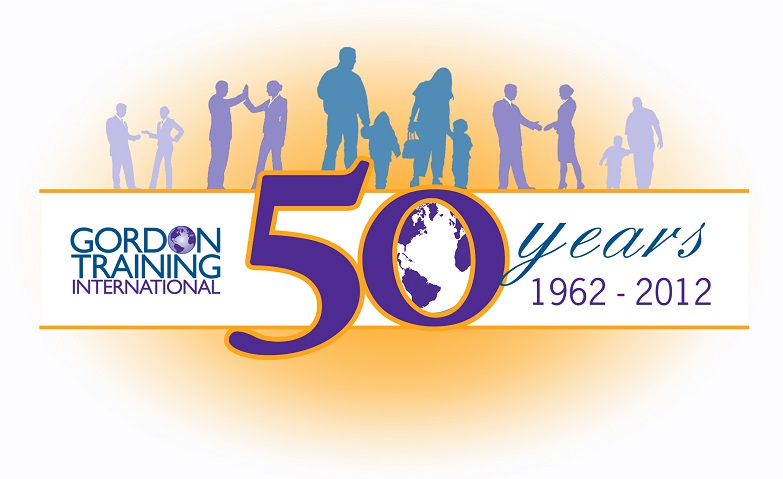Severe Parenting Fatigue:
P.G.D.* Post #4
I feel like Severe Parenting Fatigue should be a thing.
As soon as a mom in my course said it, I jotted down SPF!!!! It's so ubiquitous and, personally, all too familiar. Parental burn-out is especially apparent at the end of the long school year but -- believe you me -- it really knows no seasons.
Yet relationships with our children are potentially the most rewarding of this one life we have. So why would we settle for anything approaching SPF? Shallow dips and turns we may ignore but I invite you now, my friend, to help yourself out of this lonely place.
Like many of us who have read the P.E.T. book or taken the course, you already know who owns the problem, which skills to use. The trouble is finding the empathy and energy when parenting through sludge and deep unease makes us, instead, want to turn away, curl up and go to sleep.
Please rouse yourself because what's at stake is nothing short of a life well-lived.
"Feeling our connection to each other is really the difference between living and dying," says Tara Brach, a meditation teacher I adore. I'm using my 2014 course with her here; six weeks of Loving, Resilient Relationships with Mindfulness helped me claim my right to be a light and happy parent. When we feel good and can shower our children with affection, that strong attachment affects their well-being on every level.
Let's give them that and heal ourselves along the way.
Pause
Tara says it starts with a pause. In the hectic, sometimes hellish, pace of raising kids, it's the last thing we feel we are able to do and, yet, it is there, resting, that the possibility to transform lies.
In that moment, we may start to investigate our own experience right here, right now. Tara says of disconnection: "When we are having a hard time feeling connected, we are not connected within, to our own heart, to our own being."
Acknowledge Our Conditioning
We are strongly wired to want others to be different and to keep our guard up. What we know about neuroplasticity gives us hope that we can de-condition this pattern.
Would you carve out 2 minutes right now for some reflection?
Set an Aspiration
Tara asks: "If you only had a short amount of time on this earth with your loved ones, what would really matter?"
Take a moment to fill in the blank:
My aspiration in this life is to _______________________________________.
Say it out loud. Resolve now or later today to share it with a friend or your co-parent. Maybe take a second and program a daily reminder into your phone. "We need a strong aspiration because there are a lot of layers of fear between us and loving," says Tara.
And, truly, who really knows what will happen tomorrow?
Become Mindful of the Present Moment
This starts with noticing the body -- the quality of your breathing, the muscles, your skin and hair, any sensations as you sit upright. Be friendly and attentive to yourself; if your mind wanders, just gently bring it back without judgment.
For a long time, I was puzzled by the focus on the physical and the breath until I realized it helps to get us out of our thoughts; I've come to welcome the break.
Notice our Three Patterns for Meeting Unmet Needs
Grasping
One big relationship pattern we have is grasping, being in pursuit of something we believe we need to be happy or whole. This comes with an underlying belief about our child that something is missing.
Our kid becomes a two dimensional means to an end.
Fleeing
The second strategy is to take flight because we believe somehow that we are not safe in our relationships. Besieged and surrender used to be my words for parenting.
Fighting
The final way we manage is through aggression. As parents, Tara says, we often do this through making rules and trying to dominate using them. The universal attack mechanism is, of course, blame and its cousin, resentment.
May I assure you that this noticing step doesn't mean your child is right? You are not condoning any lying, hitting, name-calling, screaming or swear words. This is not "idiot compassion" where you fail to protect yourself -- or your other children -- with boundaries.
This is just an investigation, a wondering about what's going on, a saying Yes to what you're feeling and believing. You're allowing the fear, anger or sadness. You're going under the patterning and asking gently: What am I most afraid of? What's the worst part about this?
Start a Ripple Effect with Yourself at the Center
By touching down into what's difficult and vulnerable for you (under Gordon's Anger Iceberg), there will be a natural expansion of compassion to include your child.
Seeing our own suffering is the stone dropping into the center of the lake. It's the prerequisite to letting go of blame.
So start this process with the intention to forgive yourself for feeling stressed, burnt out, even depressed. Sometimes it's not that we have to forgive so much as to just care about the pain we are in.
Is tenderness for yourself hard to muster?
Then call on the most compassionate being you can think of to look in on you, to hold and comfort you. Who can see past all your patterns to the love inside? Maybe it's your big shaggy dog, warm at your feet oozing unconditional affection. Maybe it's your grandmother, or Buddha or your best friend. Bask in the generosity of their accepting presence.
Deepen it with some actual physical kindness to yourself. Don't be shy -- put your hand on your heart. Stroke your cheek or your arm. Tara says that the brain will be activated by touch so it's important to embody the tenderness you are starting to feel for yourself. "Make love of yourself perfect," she quotes another meditation teacher Sri Nisargadatta.
And perhaps you are dipping down into a deep sadness, a realization that you've been living with some unmet needs for a long, long, time.
Free Yourself of Blame and Resentment
This is not -- I repeat NOT -- about a self-lecture: C'mon, enough wallowing. You're the adult! Be the bigger person and forgive her. She's only a kid!
Rather, forgiveness comes more naturally once we show ourselves kind acknowledgment and maybe even grieve the childhood we didn't have. Two practices that help our compassion ripple outwards are Tara's forgiveness meditation and compassion (Tonglen) meditation.
Dear friend, you owe yourself unbridled joy in parenting. Help yourself open your heart to your child.
“Our failure to know joy is a direct reflection of our inability to forgive.”
Your child desires your happiness. With a steady parent whose cup is overflowing, she will then take herself out into the world and offer her own full cup.
Good luck as you start to take steps to heal yourself.
Much love,
Catherine
*P.G.D. stands for Perfectly Good Day. I started this series to encourage parents to carve time out of the No Problem Area for self-care. Here's my inaugural P.G.D. post. (Hint: If you type in P.G.D. (include the periods!) in the search box, you can always find the other posts and learn a variety of strategies.) This kind of work is the only reason I am here today, lighter and more at ease than I've ever been with myself or my kids.
Credits: Stressed parent (http://i.telegraph.co.uk/multimedia/archive/03034/stress_depression_3034171b.jpg); Rilke quote (http://quotepixel.com/images/quotes/life/rainer-maria-rilke-quotes_5083-4.png)







